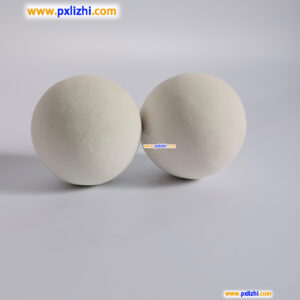
Keyword: inert ceramic ball
# Inert Ceramic Ball Applications in Industrial Processes
## Introduction to Inert Ceramic Balls
Inert ceramic balls are widely used in various industrial processes due to their excellent chemical stability, high mechanical strength, and thermal resistance. These small spherical ceramic pieces play a crucial role in many chemical and petrochemical applications, serving as catalyst supports, tower packing, and bed support media.
## Key Properties of Inert Ceramic Balls
The effectiveness of inert ceramic balls in industrial applications stems from their unique properties:
- High chemical inertness
- Excellent thermal stability
- Superior mechanical strength
- Low water absorption
- Resistance to thermal shock
## Major Industrial Applications
1. Catalyst Support in Chemical Reactors
Inert ceramic balls are commonly used as catalyst supports in fixed-bed reactors. They provide a stable foundation for active catalysts while ensuring proper gas or liquid distribution throughout the reactor bed.
2. Tower Packing in Distillation Columns
These ceramic balls serve as efficient packing materials in distillation and absorption towers, enhancing mass transfer between liquid and vapor phases while minimizing pressure drop.
3. Bed Support in Filtration Systems
In water treatment and other filtration processes, inert ceramic balls support filter media while allowing uniform flow distribution and preventing media loss.
4. Thermal Insulation in High-Temperature Processes
Due to their thermal stability, ceramic balls are used as insulating materials in furnaces and other high-temperature industrial equipment.
## Advantages Over Alternative Materials
Compared to metal or plastic alternatives, inert ceramic balls offer several advantages:
| Property | Ceramic Balls | Metal Balls | Plastic Balls |
|---|---|---|---|
| Temperature Resistance | Excellent | Good | Poor |
| Chemical Resistance | Excellent | Variable | Good |
| Mechanical Strength | High | High | Low |
## Selection Considerations
When selecting inert ceramic balls for industrial applications, consider these factors:
- Operating temperature range
- Chemical environment
- Required mechanical strength
- Size and surface area requirements
- Pressure drop considerations
## Future Trends in Ceramic Ball Applications
The demand for inert ceramic balls continues to grow as industries seek more efficient and durable materials for harsh process conditions. Advances in ceramic technology are leading to improved formulations with even better thermal and chemical resistance properties.
As environmental regulations become stricter, the use of inert ceramic balls in pollution control applications is expected to increase significantly, particularly in flue gas treatment and wastewater purification systems.